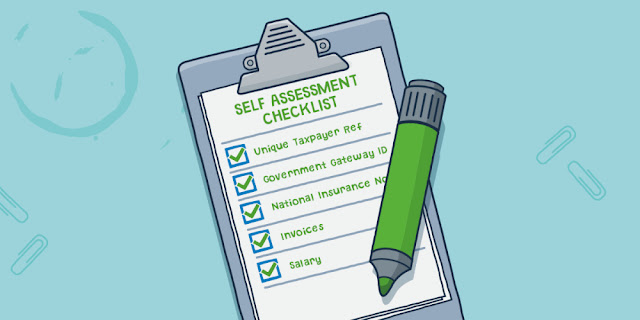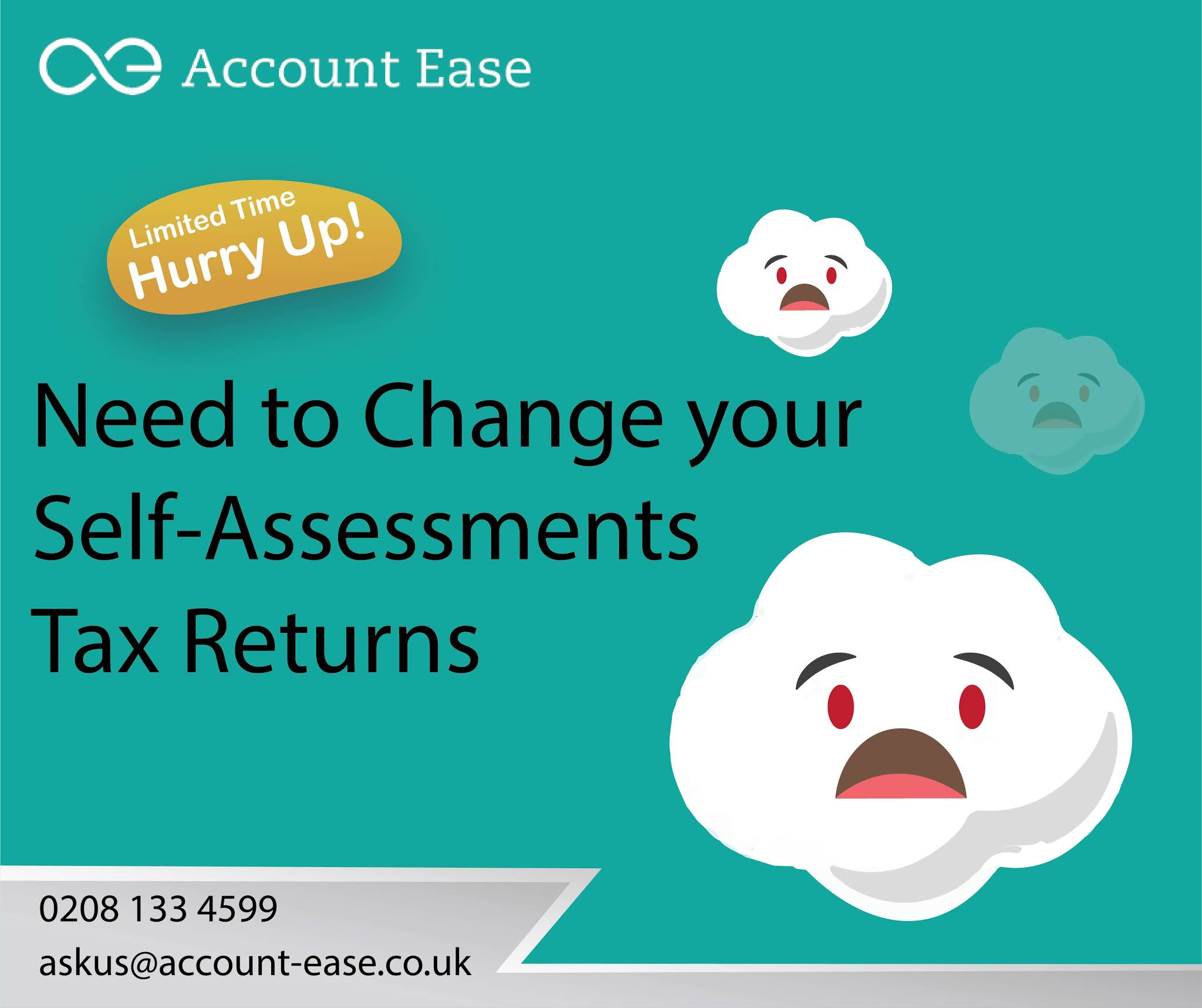Self-Assessment Tax Return 3-Steps to Avoid a HMRC Tax
Self-Assessment Tax Return UK:
3-Steps to Avoid a HMRC Tax Investigation:
Self-assessment season is upon us and if you are required to
do so you have until the 31st of January to complete.
Submit your tax return here in the UK for the previous tax
year one of the aspects of the self-assessment system. What you should be aware
of and maybe have faced in the past are HMRC inquiries and investigations into
your tax returns.
We will cover what is a HMRC tax inquiry? what normally
prompts an inquiry? and three steps you should take to reduce the risk of an
inquiry.
What exactly is an HMRC inquiry?
When you complete and submit your self-assessment tax return
by the 31st of January every year HMRC immediately processes your tax return.
Make it secure and right.
Now have a powerful and advanced computer system and
software that does this for them and with the push to digitization and HMRC.
So, unless you hear otherwise from HMRC.
This is what is known as a process now check later system to
encourage compliance. Honesty HMRC’s extensive inquiry powers are an essential
element of the self-assessment tax system.
The taxes management act of 1970 gives HMRC the right to
inquire into personal and trustee tax returns. This right applies to the
original tax return and to any subsequent amendments to the return made by the
taxpayer.
It applies in all cases the term inquiry does not have a
statutory definition and therefore carries its normal dictionary definition in
their inquiry manual paragraph emo091 HMRC.
Put forward the definition as seeking information asking.
Questioning consequently anything beyond a correction of an obvious error or a
mission is treated as an inquiry and must be dealt with by way of a formal
notice of inquiry which you would receive.
What
prompts an HMRC inquiry?
The vast majority of inquiries begin because HMRC suspects
that there is something wrong with your self-assessment tax return. Spotted by
a computer system and network. Give you a better knowledge of HMRC.
It’s shown on the return letters used by HMRC to taxpayers
to recheck. An entry or the lack of an entry on a self-assessment return in a
particular area nudge letters are not an inquiry in itself.
But if you don't deal with the requestor information on a
nudge letter the chances are HMRC will open a formal inquiry into your tax
return there is what's known as an inquiry window.
This is basically a time limit so you have to open a formal inquiry let's suppose you complete your 2019-20 self-assessment tax return. Submit it on the 31st of January 2021 the deadline date assuming HMRC received.
The return on the same date then under the taxes management
act of 1970 they will have up to 1months from this date to open an inquiry there
are circumstances.
There are
generally three types of inquiries.
- Ø Aspect
Inquiry
An aspect inquiry relates to one or selects specific entries
in your return. It's handled honestly to the point.
- Ø Random
Inquiry
Random inquiries still happen HMRC will select a number of
random returns not based on any risk factors. But are primarily designed to
ensure that the inquiry system is working well and to send out a little bit of
a message. That they do actually check people's self-assessment returns.
- Ø Full
Inquiry
A full inquiry goes a bit deeper and it is where HMRC seeks
to inquire into every aspect of your self-assessment return. To also test your
overall financial affairs ordinarily an HMRC inquiry should be nothing to worry
about so long.
3-simple steps to decrease the danger of an HMRC inquiry:
There are a number of steps and checks you can make to
significantly reduce the event of any type of HMRC inquiry but these are the
three we recommend you focus on
1: Get
it did early
Your accountant gets time to actually review. The return
objectively doesn’t forget from the 6th of April to the 31st of January you
have almost 9 months to prepare completely.
Submit your return so, there is plenty of time if something
looks odd when you take a step back then. It gives you a chance to iron out any
accidental and non-deliberate errors or admissions.
Before submission, as so you are exercising reasonable care
honest mistakes do happen and HMRC does understand. This but you want to reduce
the chances of an inquiry in the first place so therefore take a little extra
time and thus care.
2: Usesupplementary notes in your return
To use supplementary notes where appropriate in your
self-assessment tax return HMRC provide blank boxes to add supplementary notes
optionally.
You can add text to provide additional useful information
and explanations that can provide HMRC with some clarity and reduce any
misinterpretation or misjudgment of your numbers.
That their computers could throw up this is particularly
useful if your affairs are somewhat more complex. For example, you have capital
gains properties overseas income, or other types of complexities.
3: BeHonest
Don't deliberately misstate fabricate or conceal material
numbers just to save a bit of tax yes there is a moral argument as to.
Why some rich individuals and large organizations perhaps
don't pay their fair share of taxes but for most of us ordinary folk. This is
something we cannot directly control so, therefore it's wise not to let this
skew your judgment and the legal obligation with your own tax affairs.
If HMRC do launch an inquiry and dig deeper their tax
investigators are trained to unearth such intent through their questioning
This could lead to a full-on inquiry your time and energy
are then diverted away from your job business and family. Quite frankly you
could be facing a heap of issues not to mention potential heavy penalties
interest on underpaid tax and in the absolute worst case.
Scenario a criminal investigation and proceedings against
you you'd rather sleep well at night with a clear conscience. So, you have the
right mental energy and effort to do what you do the best and on a final note,
the law does allow taxpayers to organize.
Their financial affairs in such a way as to minimize their
liability to tax this is what's known as tax avoidance. Which whilst acting
within the strict letter of the law is completely legal tax evasion. However,
is strictly illegal and HMRC has great powers to ensure that people acting
outside the law face the consequences for their actions.




.jpg)
Comments
Post a Comment